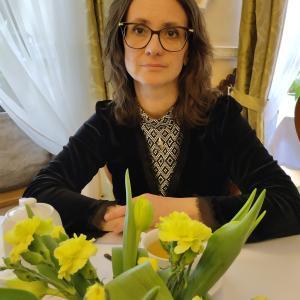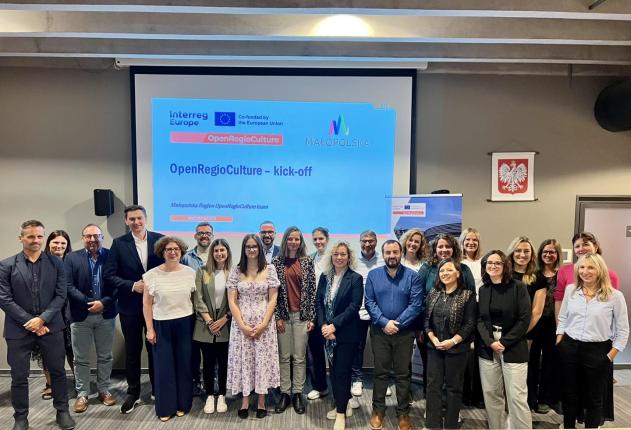Poland's Małopolska region: putting inspiration to action for new social policies
Since Poland joined the EU in 2004, Interreg programmes have helped the country's southern Małopolska region to improve its social policies.
At Interreg Europe's monitoring committee in Gdańsk, the Marshal's Office of the Małopolska Region shared its progress, from better telecare services for older people to ongoing efforts to enhance access to cultural places for people with disabilities.
Improving social policies by working together
2007 - 2013: Inspiration from Andalusia
During the 2007-2013 programming period, the Małopolska region participated in the Interreg IV C (predecessor of Interreg Europe) project, "Innovation People for Societal Change", led by Spain's Andalusia region. After the project concluded, the Spanish region organised a study visit specifically for a group from Małopolska.
During the trip, the Polish group had the opportunity to dive into learning about Spain's telecare system.
"This knowledge, we brought back to the region", said Aneta Widak from Małopolska's Marshal Office. Armed with new knowledge, the region launched "The Małopolska Tele-Angel" project, co-financed by the EU, from 2018 to 2023.
Thanks to the "Tele-Angel" project, over 6,000 people in the region now have 24/7 access to telecare services. Additionally, over 1700 people have received training on providing care.

"Right now, we have one of Poland's biggest telecare systems."
2014 - 2020: Tackling challenges linked to ageing populations
Poland's ageing population is quickly increasing. The median age in the country was 25.8 in 1950, and by 2050, it will be 51, according to the World Bank. At the same time, the overall population is decreasing.
In response to the shift in demographics, the Małopolska region joined eight other European regions to work on creating a support system for health and care services for older people under the Interreg Europe ITHACA project. They also aimed to use social and technological innovations to improve these services.
"At the time, there wasn't a policy in place for that target group", explained Aneta Widak. "The most important exercise was a mapping exercise", she said. This involved analysing policies, key events and major projects. They also studied the main people and organisations involved to start building a support system in Małopolska.
Potentially add the part about combining health and care services under one ministry but it's not clear to me what she meant during this part of the presentation.
Also, Irma wants to know if the following project (Malopolska Tele-Angel 2.0) is receiving structural funds?
The ITHACA project helped influence "The Małopolska Tele-Angel 2.0" project, which will provide 8000 people with a safety wristband featuring an alarm button. 2500 more people will receive care services from home. This project, co-financed by the EU, is running from 2024-2029.
2021 - 2027: Improving accessibility in cultural spaces
Polish authorities have been striving in recent years to improve accessibility in public institutions. The Małopolska region, interested in forming an Interreg Europe project with other European regions on the subject, looked at past Interreg projects for inspiration.
Building on previous experience with the Interreg Poland-Slovakia Open Museums project and the Interreg Europe CRinMA project, the Polish region launched the OpenRegioCulture project.
Currently, the project is working on taking a co-creation approach to finding policy solutions. Co-creation is a technique brought over from an Interreg Central Europe project. It means that policymakers are collaborating with the people who will actually use the services to make sure that everyone's knowledge and ideas are used in making culture, nature and tourism more inclusive, accessible and user-friendly.
Collaborating has even changed the language that the regions are using when talking about their project. "We now know that these people don't want to be described as having special needs, but various needs", said Aneta Widak. "This is something we acknowledge."
Interreg provides long-term support and progress
For the Małopolska region, Interreg programmes are providing benefits for the years to come. "We are speaking very long term", explained Aneta Widak. Between the study visit in Spain and the implementation of the telecare project in her region, eight years went by.
Aneta Widak also said that for the Małopolska region, the most important stage for the interregional cooperation projects (Interreg Europe) is when the results eventually get transferred into strategic documents. This way, the cooperation eventually impacts mainstream programmes.


